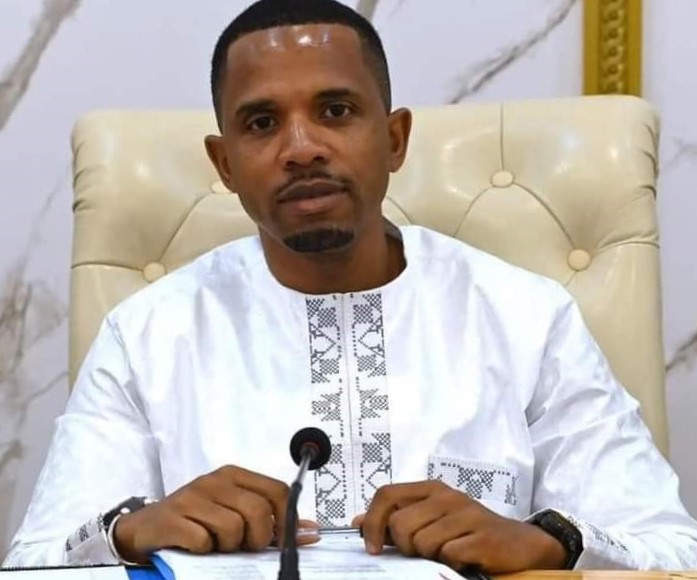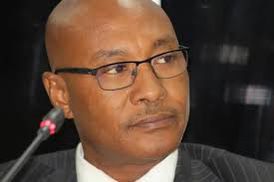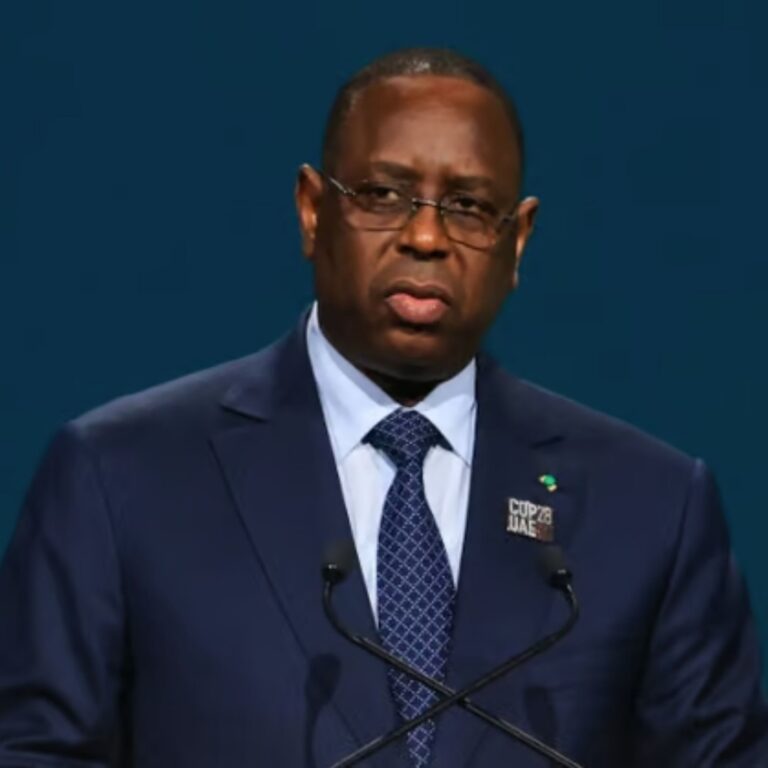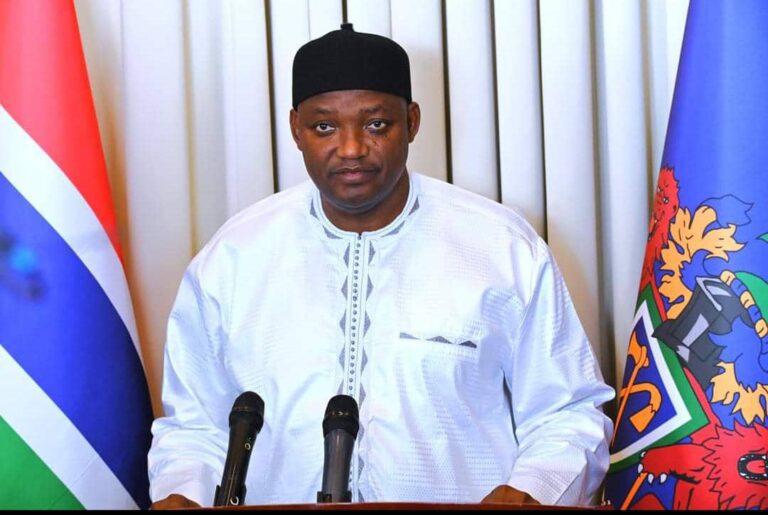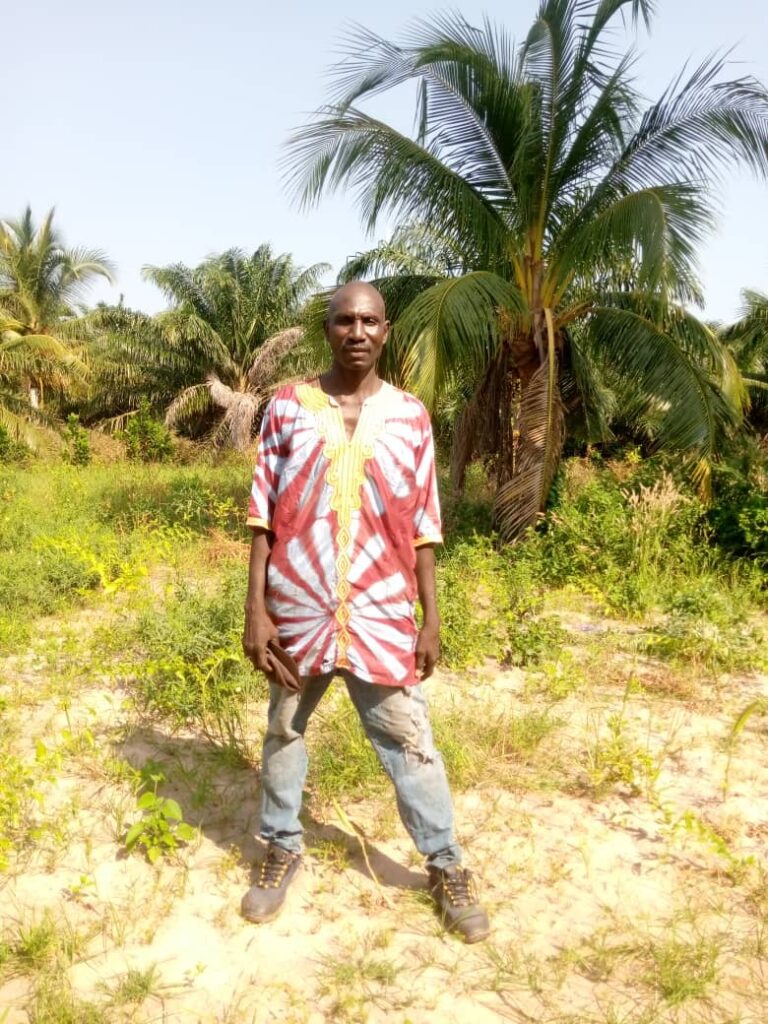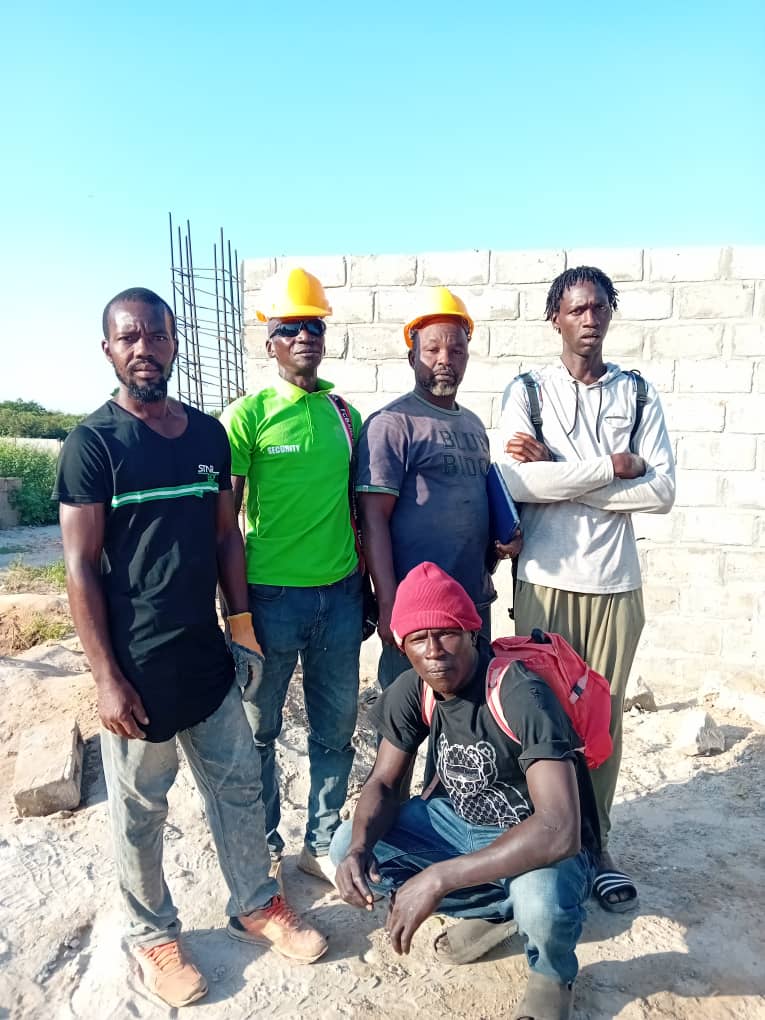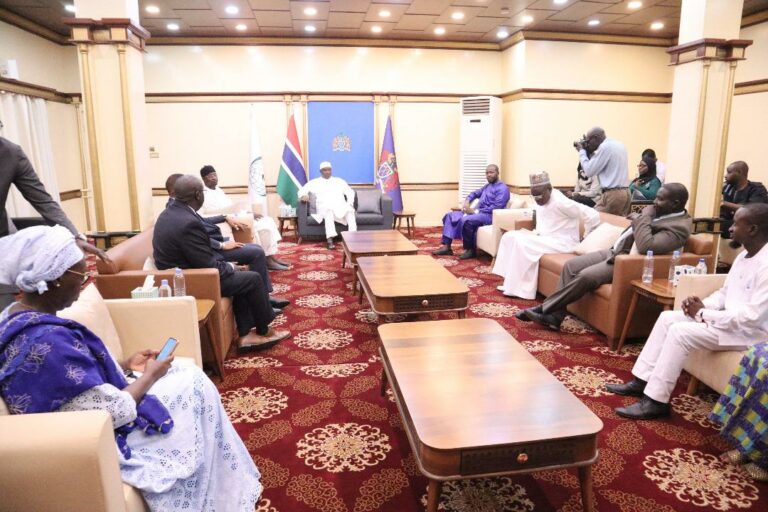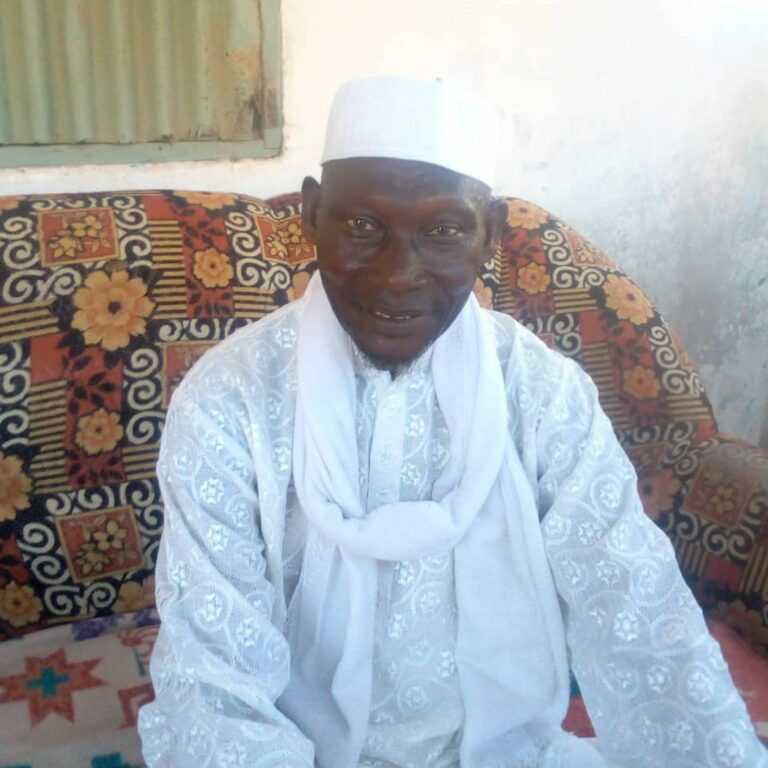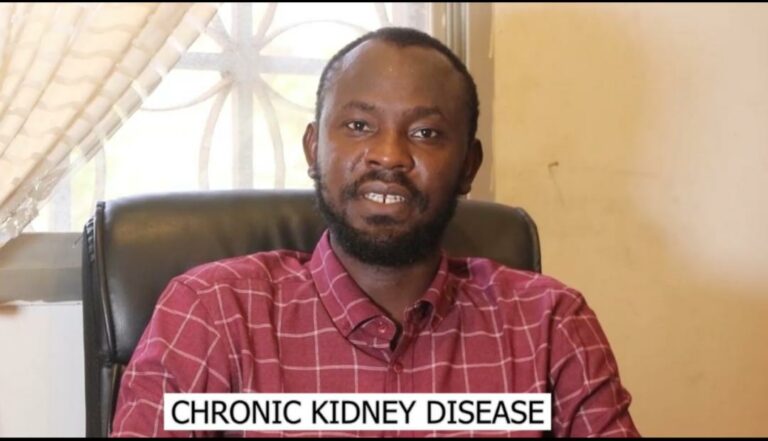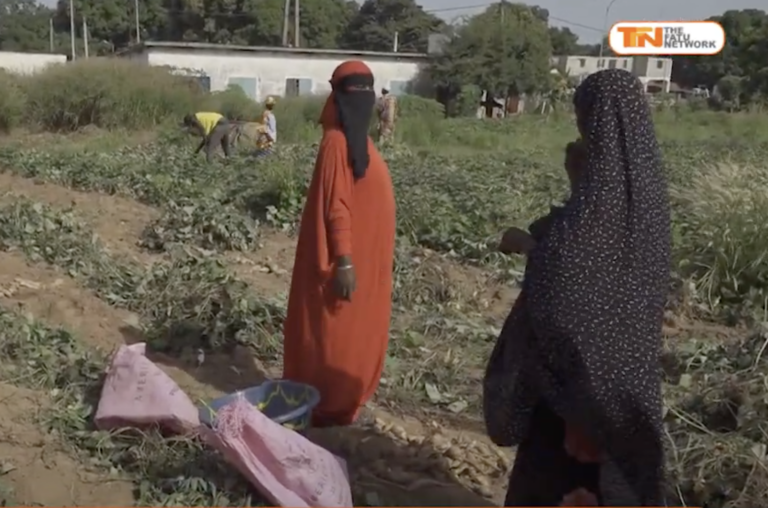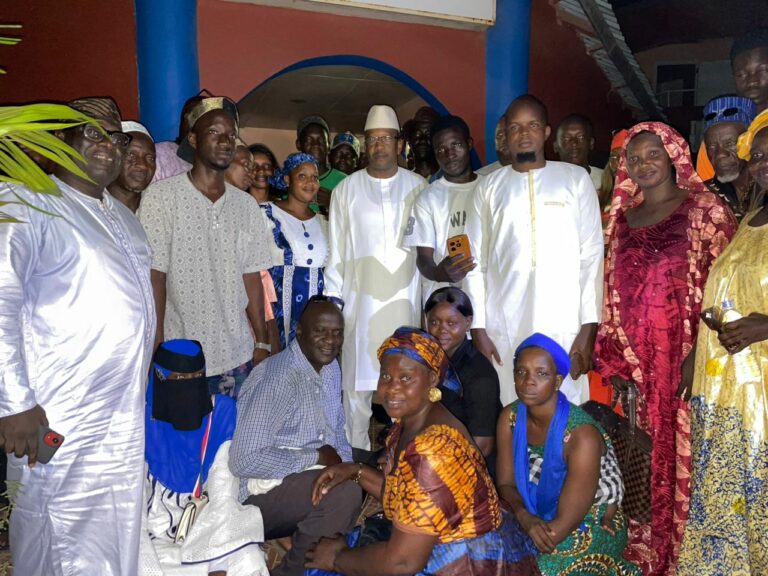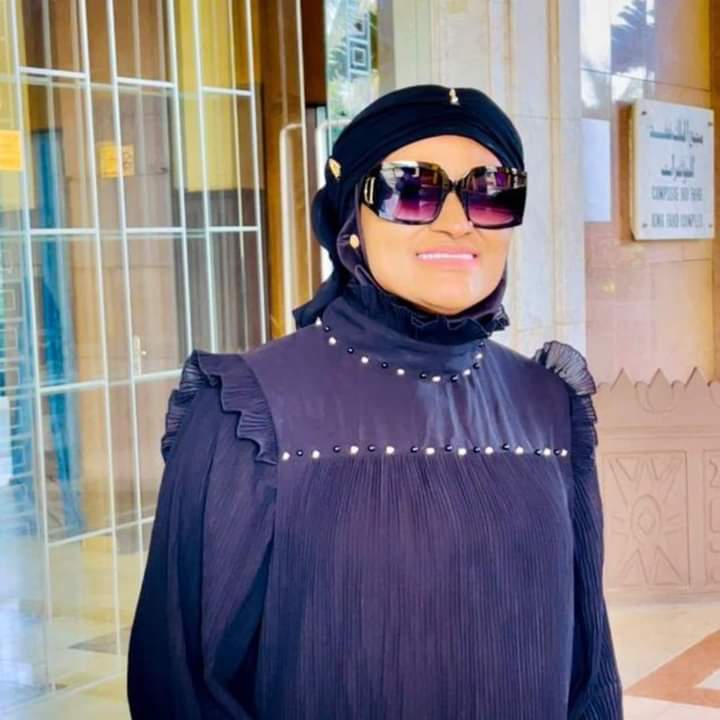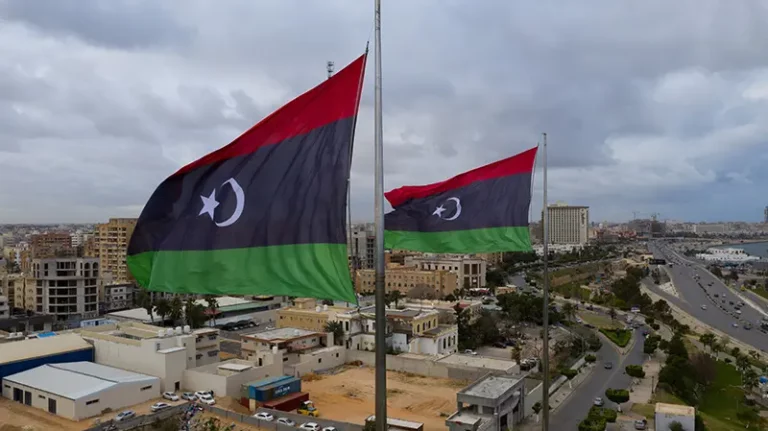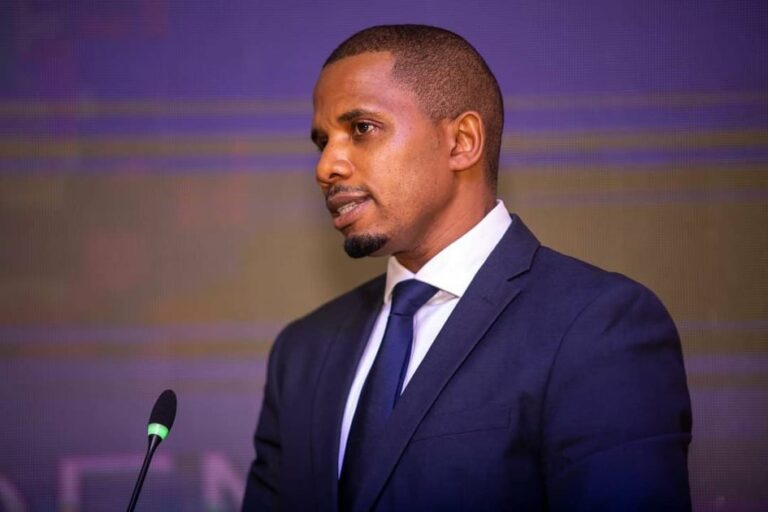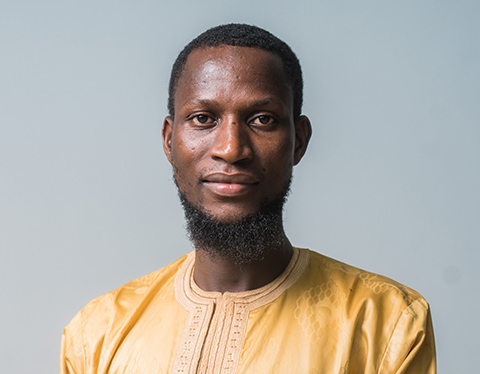By: Ousman F. M’Bai
Financial Crime, Regulation & International Asset Recovery Lawyer/UK
Founder: ProffMaXX (Gambia) Ltd (Ground Water Drilling, Exploration & Production)
After the Raid: FAR Ltd.’s Sudden Exit from The Gambia
FAR Limited
Chairman’s Review: Annual Report: 31 December 2023.
The Gambia Blocks A2 and A5
‘The Company has successfully negotiated with The Gambia Government for an extension to the permit term of Blocks A2 and A5 for an additional 12 months, a substantial reduction in the permit statutory costs, and no obligation for expenditure on the licence for a 12 month period commencing on 1 April 2023.
The Company undertook a remarketing of Blocks A2 and A5, with the substantially lower fixed permit statutory cost structure. The marketing efforts were unsuccessful, and after year end, the Company has surrendered Blocks A2 and A5 and closed its office in The Gambia’.
This passage confirms that FAR Ltd. made a sudden, unannounced exit from The Gambia, relinquishing its rights to licence blocks A2 and A5. Their abrupt departure, like a vessel leaving port under cover of night, left The Gambia facing more than just financial loss—it was a blow that reverberated across the nation.
When FAR Ltd., a relatively obscure company with no significant hydrocarbon experience, first acquired 100% of The Gambia’s A2 and A5 licence blocks, few raised concerns. The nation, like many others, was captivated by the prospect of an oil and gas discovery similar to the SNE Sangomar field. FAR Ltd.’s tenuous association with that field was enough to roll out the red carpet. However, the goodwill of The Gambia’s government was not reciprocated. As time would reveal, FAR Ltd. merely used The Gambia as a bargaining tool for its own financial advantage, ultimately sacrificing the country’s economic interest by declaring that the A2 and A5 blocks were not extensions of the SNE Sangomar oil and gas field. With this simple yet devastating assertion, The Gambia was denied its rightful stake in a shared reservoir within the A2 block of the Senegal/Gambia sub-basin, which straddles the maritime boundaries of both countries, as indicated by 3D seismic data.
Like any shrewd operator, FAR Ltd. shielded itself from potential legal repercussions by securing a release agreement from The Gambia’s government. This agreement allowed FAR Ltd. to scuttle away without facing penalties, fees, or any liability for the licence blocks it had surrendered. It is difficult to comprehend how such an agreement could have been made, considering the national interest at stake. The arrangement reflects a troubling exploitation of The Gambia, potentially facilitated by enablers who ensured FAR Ltd.’s preferential treatment. This situation underscores FAR Ltd.’s troubling impact on The Gambia. The exploitative traits embodied by figures like Tippu Tip continue to resonate in modern Africa, just as they did one hundred and fifty years ago.
Background: FAR Ltd. and The Gambia
FAR Ltd. arrived in The Gambia in 2016, at a time when the country was experiencing political instability. It was granted licences for the A2 and A5 blocks, believed to be hydrocarbon-bearing, with the A2 mapped on 3D seismic data as a contiguous extension of the SNE Sangomar field. At the time, FAR Ltd. held a 13% stake in the Sangomar field, alongside joint venture partners Woodside Energy and Petrosen.
Despite these associations, FAR Ltd. lacked both the capital and operational capacity required to advance exploration efforts independently. Consequently, it brought in Petronas under a joint arrangement to fund the exploration work.
Despite lacking experience as an operator, FAR Ltd. proceeded to drill its first well, Samo, in the A5 block in 2018, claiming to have found only oil shows. In 2021, it claimed to have drilled a second well, Bambo, in the A2 block, again asserting that oil was not found in the primary well, though it did identify oil that was deemed commercially non-viable in the secondary sidetrack. These ambiguous results and FAR Ltd.’s inexperience raised serious concerns about the credibility of its findings.
In the lead-up to the Bambo drilling, FAR Ltd. was embroiled in negotiations with Woodside Energy over a default notice issued due to FAR Ltd.’s non-payment of its capital call on its SNE Sangomar stake. The notice put FAR Ltd. at risk of losing its entire stake without compensation. Against this backdrop of uncertainty, FAR Ltd. sold its stake in the SNE Sangomar field to Woodside Energy for $126 million in 2020, with full payment received in July 2021. This sum was in addition to a guaranteed future payment of $55 million, payable by 2027. However, despite being aware of the 3D seismic data indicating that the SNE Sangomar reservoirs extended into The Gambia’s A2 block, it appears that neither Woodside Energy, Petronas, nor Petrosen conducted any due diligence to validate FAR Ltd.’s drilling results in The Gambia. Perhaps the timing was strategic: by concluding the deal before FAR Ltd.’s drilling activities in The Gambia, Woodside Energy may have aimed to absolve itself of any due diligence responsibility.
A year after the deal, Petronas quietly divested its stake in The Gambia, selling it back to FAR Ltd. before exiting the country. FAR Ltd. reacquired a full interest in the blocks and secured a 12-month permit extension from The Gambia’s government, with terms that were remarkably beneficial, including reduced statutory costs and no expenditure obligations for the period starting in April 2023.
In what resembles an attempt to accelerate financial gains, FAR Ltd. appears unwilling to wait until the maturity date of the $55m payment in 2027. Instead, the company has engaged Gneiss Energy Limited, a UK-based corporate finance advisory firm specialising in the energy sector, to help market and sell the contingent $55m payment owed by Woodside Energy. This raises the question: what’s the rush?
Specifics of the Local Legal Environment in The Gambia and How It Has Played a Role in Oil and Gas Sector
The local legal environment in The Gambia is small and concentrated within a 25 – kilometre radius. The legal profession operates as a fused system, meaning there is no distinction between the roles of barristers (advocates) and solicitors (transactional lawyers). While many law firms are referred to as ‘chambers,’ most are sole practices focused primarily on general local law matters. In instances where a practice has more than two members, with the exception of a few, the additional members are often family, either parental or otherwise. These firms generally lack the necessary legal research facilities and IT infrastructure to meet the demands of international clients, particularly in complex oil and gas transactions.
There are only a few ‘firms’ that seem to have made significant breakthroughs in this sector, and these are generally practices with some connection to foreign firms.
Overall, the local legal environment lacks the specialised technical expertise required to handle complex transactions, particularly in oil and gas. As a result, there is a heavy reliance on foreign advisory firms, mainly based in the UK, for technical assistance.
However, even when foreign expertise is brought in, its effectiveness is often undermined by entrenched practices within the local legal system. These practices include conflicts of interest and a failure to differentiate between confidentiality, legal privilege, and regulatory disclosure requirements. At the heart of this issue is the imbalance created by well remunerated law firms, pitted against a timid, unimaginative, and underpaid civil service, too willing to sacrifice national interests without due consideration.
These issues have caused significant harm to the success of foreign direct investment in The Gambia, and in many cases, have stunted the country’s development objectives.
The Key Players: Amie Bensouda & Co LLP
One of the leading legal practices in The Gambia is Amie Bensouda & Co LLP, founded in 1995 by Ms. Amie Bensouda as a sole practice. Around 2007, her son, Aziz Bensouda, joined the firm, later becoming a partner. To this day, it remains a small family-run practice supported by a network of professionals across government, banking, accounting, insurance and media sector giving it unparalleled local reach.
While Ms. Bensouda’s legal skills have been central to her practice’s success, her extensive network within The Gambia’s public institutions has also played a significant role. Entering the legal field in the early 1980s, she held key positions within the Ministry of Justice, including heading the Civil and Company Law Division, which brought her into close contact with influential figures across government. She later served as Solicitor-General and briefly held the position of Attorney General in 1994, during the transition period following the military coup led by Yahya Jammeh.
Evidence presented at The Gambia’s Truth, Reconciliation and Reparations Commission (TRRC) revealed that Ms. Bensouda drafted the decree that legitimised Jammeh’s seizure of power. She justified her actions as a damage control effort to prevent further destabilisation by what she described as a dangerously erratic Jammeh.
Her appointment as Lead Counsel to the Janneh Commission—a body established to investigate President Jammeh’s illicitly acquired wealth —was noted by many ethical observers with interest. During her tenure, questions arose regarding the process for disposing of Jammeh’s seized assets. A professional disagreement emerged with the Secretary to the Commission, a respected financial expert, who reportedly raised concerns over the asset disposal approach in a memo. The then Attorney General, Mr Ba Tambedou, subsequently removed the Secretary from his position. According to public reports, assets valued at up to $1 billion were disposed of by the Commission at significantly reduced amounts, a process that drew criticism from various quarters for perceived issues with transparency and fairness, impacting the national treasury. While the role of Lead Counsel did not confer authority over asset disposal, which remained the Commission’s responsibility, these developments underscore the importance of clear, accountable processes in such high-stakes matters.
Ms. Bensouda’s brother, Habid Drammeh, also held several influential positions, including Minister of the Interior in 2017, Secretary General of The Gambia Civil Service between February and September 2018, Director General of The Gambia Tourism Authority in the early 2000s, and Director General of the Gambia Transport Service Commission.
When FAR Ltd. arrived in The Gambia, Ms. Bensouda was already retained as local counsel for several parastatals and the country’s largest local authority. In a close-knit society like The Gambia, where social structures are informal, her deep connections and prominent status provided her with significant access to the corridors of power, aligning her with the classic definition of a domestic PEP. It is therefore unsurprising that FAR Ltd. retained her son, Aziz Bensouda, as local counsel. Aziz’s practice benefits from extensive familial and established professional networks, which may make it challenging to assess his independent legal expertise.
Profile of the Pseudo Uncle and Nephew – The Two Cousins
Fafa Sanyang, currently The Gambia’s Ambassador to the UAE, served as Minister of Energy and Petroleum from 10 April 2017 until 4 May 2022, when he was replaced by Abdou Jobe. The current officeholder is Nani Juwara. Sanyang (not worthy of the title Mr.) is reportedly a cousin of Jerreh Barrow (unrelated to President Adama Barrow), the Director General of The Gambia Petroleum Commission. Both Sanyang and Barrow benefitted from government-sponsored opportunities to advance their studies in specialised fields in preparation for their public service roles. However, their tenures have been marked by colossal incompetence, resulting in disastrous consequences for The Gambia’s energy and petroleum sectors.
Sanyang holds a bachelor’s degree in geology from the University of Sierra Leone (1989), a master’s degree in marine management from Dalhousie University, Canada (1997), and another master’s degree in engineering geology from the University of Leeds. He also claims to be a fellow of the Geological Society of London, though the relevance of this credential remains questionable. According to his Wikipedia page, Sanyang oversaw a $165 million deal between the National Water and Electricity Company (NAWEC) and Sinohydro Corporation in April 2017. However, details of this deal are conspicuously absent from public records.
Sanyang ensured that his cousin, Jerreh Barrow, received prestigious scholarships, and his career progression within the departments Sanyang headed was virtually guaranteed as he steadily climbed the ranks. Jerreh Barrow claims to hold a master’s degree in applied geophysics from Chiang Mai University (2008) and a bachelor’s degree in geology from the University of Ghana, Legon (2004). He has held various positions within The Gambia’s Geology Department, including Deputy Director, before being appointed Commissioner of Petroleum in 2015, a position he continues to hold. While his role in 2015 carried less authority, the situation changed dramatically under his cousin’s leadership at the Ministry of Energy and Petroleum. Sanyang’s tenure as Minister set in motion a series of actions culminating in the enactment of the Petroleum Commission Act of 2021. This legislation created a near-fiefdom, centralising significant power in the hands of the Commissioner and granting him unrestrained authority over all matters related to petroleum, oil, and gas exploration, development, and production.
Under this new framework, the Commissioner has emerged as a central figure and power broker, reducing the ministry and other related departments to mere rubber- stamping functions. Although Jerreh Barrow was not directly appointed to succeed his uncle as Minister, the institutional structure was manipulated to ensure that he retained significant influence. In essence, the Commissioner’s office holds the central authority, allowing Barrow and his uncle to shape the narrative surrounding the country’s oil and gas prospects. This consolidation of power has set The Gambia on a path to failure, as placing such authority in incompetent hands inevitably jeopardises the national interest.
From Partial Stake to Full Control: FAR Ltd.’s Acquisition of Blocks A2 and A5
At the time of FAR Ltd.’s arrival in The Gambia, the country’s oil and gas prospects were largely shaped by the actions and omissions of key individuals in positions of authority. Among these influential actors were the Attorney-General and Minister of Justice at the time Ba Tambedou, as well as the Petroleum Negotiation Committee, which became involved later. From the outset, nepotism was a notable structural flaw. The emergence of a troubling family connection—a domestic PEP mother and son and a pseudo uncle- nephew (or cousins)—further complicated matters. Central to these concerns was FAR Ltd.’s acquisition of The Gambia’s A2 and A5 blocks, licences previously held by Erin Energy.
FAR Ltd.’s arrival coincided with Erin Energy’s liquidity crisis, which led to Erin selling 80% of its licence to FAR Ltd. for $13 million. Of this, $5 million was paid in cash, with the remainder structured as costs to be incurred by FAR Ltd. A key issue arose regarding the remaining 20% interest held by Erin Energy. Some internal discussions among stakeholders reportedly touched upon concerns that a perceived defect in the Model Licence Agreement might limit the government’s ability to acquire the remaining interest. Subsequent negotiations, involving various government offices, ultimately led to FAR Ltd. acquiring this 20% share for $4 million—a sum viewed by some as significantly below the interest’s potential value. Observers have since questioned whether the legal advice surrounding this transaction received sufficient scrutiny and whether alternative interpretations were considered by relevant governmental offices, including the Attorney-General and Ministry of Justice.
In 2017, the Africa Legal Support Facility (ALSF) engaged Bryan Cave Leighton Paisner (BCLP), Johnny West of Open Oil as a consultant, and local counsel—including Aziz Bensouda—to review the legal and fiscal frameworks governing petroleum projects. The objective was to renegotiate petroleum licences with international oil companies, but this arrangement raised serious concerns about a potential conflict of interest, given Bensouda’s dual role as counsel for FAR (Gambia Ltd), whose parent company FAR Ltd. had a history of seeking to amend contracts in its favour.
From the moment FAR Ltd. was granted the licences for A2 and A5 blocks, its poor financial standing and lack of expertise in exploration quickly became apparent. This raises serious concerns about the rigour with which The Gambia’s Petroleum Commission, as the regulator, vetted FAR Ltd. against internationally established investment criteria for oil and gas licence acquisition. While FAR Ltd.’s marketing pitch may have invoked optimism about its potential to deliver for The Gambia, this did not justify the reckless disregard for caution that followed.
The Petroleum Commission, under its powers set out in the 2021 Act, plays a pivotal role before any licence is granted. It is required to liaise with the Petroleum Negotiating Committee and the Ministry of Energy and Petroleum, presenting all relevant facts about any application. The Negotiating Committee, chaired by none other than the Commissioner of Petroleum, Jerreh Barrow, is composed of representatives from key institutions, including the Ministry of Finance, Gambia Revenue Authority, GIEPA, PURA and The Gambia Maritime Authority. Any concerns regarding licences or the general operation of oil and gas exploration must be reported to the Ministry of Petroleum, with legal advice sought first from the Commission’s in-house counsel and, if necessary, from the Attorney-General and Minister of Justice.
Additionally, the Commission is tasked with overseeing all exploration rights, including scheduling regular supervision and review meetings to assess licensees’ fulfilment of obligations. Such reviews must be thoroughly documented, with detailed agendas and accurate records of discussions and decisions.
Drilling Operations and Data Transparency: FAR Ltd.’s Denial of Verification Access
An effective and well-managed Petroleum Commission would maintain a vigilant interest in FAR Ltd.’s drilling activities, particularly following the unsuccessful Samo well. However, FAR Ltd. operated with little meaningful independent oversight or supervision. During the drilling of the Bambo well, although a small number of officials from the Ministry of Petroleum were allowed on the drill ship, they were denied access to crucial verification points, including data generated during drilling. The licensing regime granted FAR Ltd. ownership and custody rights over all drilling logs and data, which significantly undermined The Gambia’s ability to verify the accuracy of the drilling information in real-time. FAR Ltd.’s brazen refusal to allow verification of its drilling data has jeopardised the national interest.
The drilling reports submitted by FAR Ltd. were alarmingly inadequate and lacked detail, being accessible only to Jerreh Barrow and the Minister of Energy and Petroleum, Abdou Jobe. These reports contained no well logs, pressure data, seismic information or crucially well coordinates (i.e. the precise location of the wells drilled). Moreover, FAR Ltd. promptly plugged the wells after drilling, making any further independent examination impossible. To make matters worse, FAR Ltd. unilaterally designated the Bambo well and its side-track as a ‘tight hole,’ refusing to make any public disclosures about it. This raises serious concerns about FAR Ltd.’s operational competence and integrity. Following the surrender of its licence, the rights to the data reverted to The Gambia; however, none of the limited data left behind has met integrity parameter tests, further casting doubt on its reliability. FAR Ltd.’s claim that the SNE Sangomar field does not extend into The Gambia’s A2 block must be investigated and should be legally challenged by any future Gambian government if Woodside Energy and Petrosen fail to establish the truth sooner.
Examining Conflicts of Interest: An In-Depth Analysis
Upholding ethical and legal standards in the oil and gas sector is critical, particularly given the enormous financial stakes involved. Conflicts of interest, in all their forms, incentivise corruption and place national interests at significant risk. They can potentially arise from unrestrained hiring of the children of domestic PEPs, when legal practitioners represent both private corporations and public bodies, or when family members hold key government positions, potentially overseeing one another. Such situations raise serious concerns about compromised loyalty, improper influence, and personal gain.
A relevant example of the risks associated with conflicts of interest in the oil and gas industry is the Halliburton scandal in Nigeria. Halliburton and its subsidiary KBR were found to have bribed Nigerian officials to secure multi-billion-dollar contracts for constructing liquefied natural gas facilities. The improper relationships between corporations and government officials in this case resulted in significant financial harm and compromised Nigeria’s national interests. Halliburton was eventually fined $1.5 billion, underscoring the severe legal consequences of international scrutiny when conflicts of interest and corruption are uncovered.
FAR Ltd., Local Counsel and The Petroleum Commission: What’s at Stake?
FAR Ltd.’s business strategy in the Senegal/Gambia sub-basin aimed to maximise returns with minimal investment. To achieve this, the company deployed key personnel from its Senior management team to both Senegal and The Gambia. While Cath Norman ingratiated herself within the corridors of power in Senegal, Rolf Stork operated in The Gambia as a facilitator, coordinating interactions between the Ministry of Energy and Petroleum and the Petroleum Commission, all the while being strategically guided by local counsel on local law matters. Both individuals demonstrated remarkable agility and stealth. Cath Norman succeeded in forging a close relationship with the then President of Senegal, Macky Sall, while Rolf Stork played a facilitative role in The Gambia, liaising with the Ministry of Energy and Petroleum and the Petroleum Commission.
Although Stork did not have direct access to former President Yahya Jammeh or current President Adama Barrow, he developed working relationships with notable figures such as Jerreh Barrow, Fafa Sanyang, and the Bensoudas. These interactions proved advantageous for FAR Ltd. In Senegal, Cath Norman secured a $126 million cash payment for FAR Ltd. from Woodside Energy, while in The Gambia, Rolf Stork negotiated a licence extension before FAR Ltd.’s eventual exit from the country without incurring penalties or liabilities.
The nature of these relationships, particularly involving Jerreh Barrow, Fafa Sanyang, and Aziz Bensouda, raises concerns about whether the national interest was adequately protected during these negotiations. However, there is no suggestion that any of these individuals engaged in unlawful conduct.
Local counsel’s role included registering FAR Ltd.’s subsidiary, FAR (Gambia) Ltd., and negotiating 100% licensing rights in the A2 and A5 blocks. Counsel also facilitated the farm-out of the licence in a joint venture arrangement with Petronas. While these actions appear procedurally correct, questions arise regarding the transparency of financial transactions, particularly as none of the payments were routed through Gambian financial institutions. The absence of such transactions from the public record raises issues of transparency, though there is no evidence of illegal activity.
The Petroleum Commission and the Ministry of Energy held regular meetings with FAR Gambia Ltd., during which the company had legal representation. However, government representation was notably absent, prompting concerns about whether FAR Ltd.’s performance was properly assessed, particularly in light of its failed drilling operations.
After FAR Ltd.’s second failed well, Bambo, the company dismantled most of its operations in The Gambia, leaving Rolf Stork as its primary representative. This sudden operational shift, coupled with the introduction of a new team unfamiliar with previous activities, warrants closer examination whether it was done to conceal information.
Implications for Governance and Accountability – How FAR Ltd Misled The Gambia – Removal of Well Commitments & Penalties
Despite FAR Ltd.’s underperformance in the A2 and A5 blocks, the company requested a two-year licence extension from 1 October 2022, seeking relief from its contractual obligation to drill one well per year. A penalty clause requiring FAR Ltd. to pay $22 million in case of default was included. FAR Ltd. argued for the extension and a waiver of the penalty, claiming that it had drilled two wells—the Bambo well and its side-track—and promised to submit a technical geoscience review.
Though FAR Ltd. did not deliver the geoscience review, hopeless Jerreh Barrow recommended granting the extension and waiving the $22 million penalty. This recommendation was supported by the Petroleum Negotiation Committee and approved by the Minister of Petroleum. While there is no evidence to suggest improper conduct, the lack of independent verification of the side-track well and the failure to obtain critical data raises concerns about the thoroughness of the decision-making process.
Following the extension, FAR Ltd. took a 12-month pause before initiating negotiations to surrender its licence, citing difficulties in securing a joint venture partner. The company requested a waiver of the $4 million statutory cost and proposed no further technical work during the period. Once again, Jerreh Barrow presented FAR Ltd.’s case, asserting that the company had spent over $100 million in The Gambia. However, FAR Ltd. had previously indicated in investor presentations that its joint venture partner, Petronas, funded much of its operational costs. This discrepancy should have warranted further scrutiny, although there is no suggestion that Jerreh Barrow acted improperly.
The drowsy Petroleum Negotiation Committee failed to demand detailed financial records before endorsing the recommendation, and Petroleum Minister Jobe, asleep at the wheel, granted FAR Ltd. a release from its obligations. The lack of public disclosure surrounding these negotiations raises concerns about transparency. However, there is no conclusive evidence of unlawful conduct by any of the parties involved.
The Gambia, a small nation in severe economic distress, makes it difficult to justify how any citizen could agree to waive such substantial costs for FAR Ltd. given that the company received $126 million in payments, with the potential for millions more in the future. By sacrificing the national interest, the state has been deprived of significant financial benefits, especially considering its exclusion from the shared Senegal/Gambia sub-basin reservoirs a direct result of FAR Ltd.’s incompetent drilling programme.
To fully grasp the scale of the financial loss, one must consider the situation in reverse: had The Gambia terminated FAR Ltd.’s licence, the company would have sued for billions, citing the potential value of the undiscovered oil in these blocks. FAR Ltd. would never have waived such a claim without compensation. The actions and decisions of those involved in these negotiations represent a profound betrayal of the trust of the Gambian people.
The PetroNor A4 Licence Block Saga – A Repeat of Past Mistakes?
The handling of the A4 block appears to echo some of the same concerns raised in the FAR Ltd. case, as much of the earlier mentioned assistance provided by the ALSF is being nullified due to a repeat of the same incompetence and reckless disregard for safeguarding the national interest in the A4 block. Following the poorly negotiated settlement in the arbitration case between The Gambia and African Petroleum (now PetroNor), overseen by Fafa Sanyang, Lamin Camara, and Ba Tambedou, the implications for The Gambia could not be worse.
In this settlement, PetroNor was granted 100% of the rights to the highly valuable A4 block, with a significantly reduced signature bonus of $4 million and a 30-year lease over the block in the event of a discovery. To put this in perspective, BP paid a $10 million signature bonus for the A1 block alone. Moreover, PetroNor was exempted from paying the signature bonus for the first 12 months, and this waiver has been extended multiple times as PetroNor has consistently failed to make the payment and has done next to nothing with the block.
The result of this settlement, combined with the Petroleum Commission’s lack of enforcement rigor, has left the nation shackled, much like Tippu Tip did to our forebears. Consequently, The Gambia is being deprived of the opportunity to advance its oil and gas exploration potential, as credible and genuinely interested companies are being kept out of the market. The A4 block, located adjacent to BP’s former A1 block, which has yielded excellent seismic data, remains a highly competitive prospect. The degree of incompetence and negligence displayed by Gambians in safeguarding the national interest is truly heart-breaking.
Conclusion: Safeguarding the National Interest
The recurring theme of opacity in the handling of oil and gas transactions presents challenges to governance and accountability in The Gambia. FAR Ltd.’s operations, and the subsequent management of its exit, have raised valid concerns about whether national interests were adequately protected. While no allegations of illegal activity have been substantiated, the processes involved in these transactions highlight the need for improved oversight and transparency.
As noted in a recent Financial Times article, How Culpable Are External Lawyers in Corporate Wrongdoing?, Professor Elise Maizel argued that law firms can play a pivotal role in corporate governance. Although corporations in many jurisdictions are being held to higher standards of accountability, law firms often maintain plausible detachment regarding their clients’ conduct. A similar argument can be made regarding the need for greater responsibility in The Gambia’s energy sector.
Moving forward, it is critical that independent oversight bodies, strict codes of conduct, and full public disclosure be implemented to safeguard The Gambia’s natural resources. Without transparency, the nation risks further losses. It is vital that all parties involved in these negotiations act in the best interests of The Gambia, ensuring that its valuable resources are managed responsibly for the benefit of its people. Cry, beloved Gambia—how much longer must you suffer at the hands of your own people?
Editor’s Note
On 30 October 2024, the Fatu Network sent a detailed list of questions related to issues raised in this article to the following individuals: Fafa Sanyang, Jerreh Barrow, Lamin Camara, Abdoulie Jobe, Kanni Touray, Nani Juwara, Rolf Stork, Ba Tambedou, Dawda Jallow, Ms Amie Bensouda, and Aziz Bensouda. None provided comprehensive answers to the specific questions. Jerreh Barrow submitted a written critique and offered a sit-down interview, while Aziz Bensouda provided a written response jointly with his mother, Ms. Bensouda. Their response is in part summarised as follows:
The statements provided by Ms Bensouda and her firm clarify that she has never represented or advised the Government of The Gambia in matters related to FAR Ltd. or the A2 and A5 licenses. Ms Bensouda’s firm’s involvement has been solely as counsel for FAR Ltd. Her firm’s work is limited to Gambian local matters and does not extend to financial or technical advice. Moreover, they are not familiar with any ‘Master License Agreement’ nor its purported ‘defectiveness.’ For inquiries on waivers, extensions, or commercial decisions, reference should be made to the Petroleum Commission or FAR Ltd. The Government of The Gambian government had engaged international legal and financial experts, ensuring that all actions align with global industry standards, with records accessible from the Ministry of Petroleum and Petroleum Commission.

